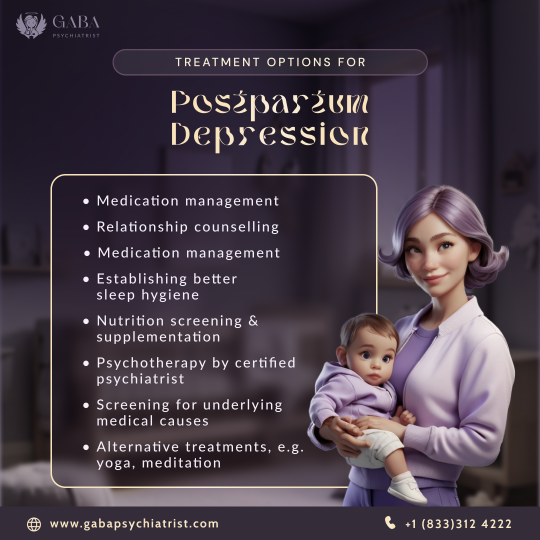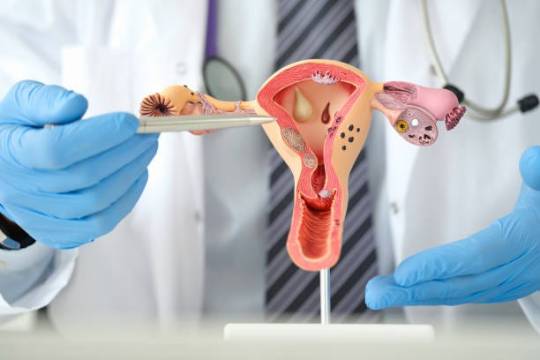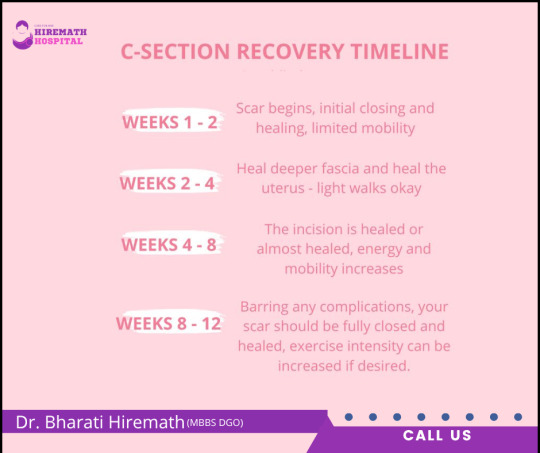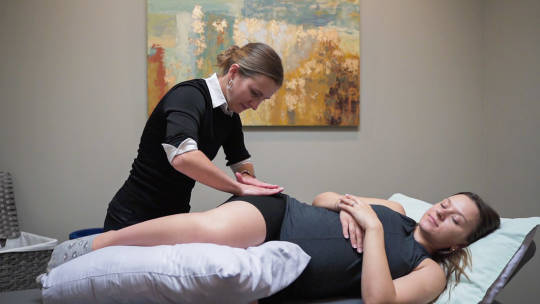#Safe Postpartum Exercises
Explore tagged Tumblr posts
Text
Postpartum Fitness Programs: A Comprehensive Guide for New Mums in 2025
Becoming a mother is one of life’s most transformative experiences. The joy of holding your newborn is unparalleled, but it’s no secret that the postpartum period can be physically and emotionally demanding. In 2025, the focus on maternal health has never been stronger, and postpartum fitness programs have emerged as a cornerstone of recovery and well-being for new mums. These programs are designed to help women regain strength, rebuild confidence, and navigate the challenges of motherhood with vitality.
#PostpartumFitness#PostpartumRecovery#NewMumFitness#PostnatalHealth#MumLife2025#Postpartum Fitness#Postpartum Recovery#Postnatal Exercise#New Mum Fitness#Postpartum Health#Postpartum Workouts#Postpartum Core Rehabilitation#Postpartum Fitness Programs 2025#Postpartum Mental Health#Fitness After Pregnancy#Best Postpartum Fitness Programs#Safe Postpartum Exercises#Postpartum Fitness for C-Section Mums#Virtual Postpartum Fitness Programs#Postpartum Fitness and Nutrition#Mum Fitness Goals#Postpartum Healing#Fitness for New Mums
3 notes
·
View notes
Text
Comprehending the Nuances of the Postpartum Phase
The postpartum period, often regarded as a pivotal phase following childbirth, encapsulates a realm of intricate adjustments that encompass not only the physical realm but also the profound emotional and lifestyle shifts as individuals transition into the uncharted waters of parenthood. Unveiling the Essence of Postpartum The term “postpartum” unravels the temporal sphere immediately succeeding…

View On WordPress
#Balancing Responsibilities#Bonding with Baby#Challenges in Bonding#Conclusion on Postpartum Journey#Coping Strategies#Early Parent-Infant Bonding#emotional well-being#Exercise after Childbirth#FAQs about Postpartum#Hormonal Shifts#Lactation Diet#Nutritional Needs Postpartum#Partner Support#Physical Changes after Childbirth#Postpartum Depression#Postpartum Phases#Returning to Work Postpartum#Safe Return to Exercise#Self-care for New Mothers#Sleep Deprivation#Understanding Postpartum
0 notes
Text
I think we as a society need to realise that one of the most dangerous jobs is being a stay at home mom.
trigger warnings below the cut.
tw for femicide and domestic violence mentions.
You're risking your financial wellbeing/future and you're risking your life having a baby. And unfortunately women are much more likely to be killed or hurt by someone they know in their own home than anyone else.
"Women and girls account for only one tenth of all homicide victims perpetrated in the public sphere, yet they bear a disproportionate burden of lethal violence perpetrated in the home: in 58 per cent of all killings perpetrated by intimate partners or other family members, the victim was a woman or girl." https://www.unodc.org/documents/data-and-analysis/statistics/crime/UN_BriefFem_251121.pdf
And unfortunately when I say "risking your life to have a baby" I don't mostly mean from pregnancy complications. Pregnant women and pregnant people are more likely to be murdered then people who aren't pregnant.
"Women in the U.S. who are pregnant or who have recently given birth are more likely to be murdered than to die from obstetric causes—and these homicides are linked to a deadly mix of intimate partner violence and firearms, according to researchers from Harvard T.H. Chan School of Public Health." https://www.hsph.harvard.edu/news/hsph-in-the-news/homicide-leading-cause-of-death-for-pregnant-women-in-u-s/
"In 2020, the risk of homicide was 35% higher for pregnant or postpartum women, compared to women of reproductive age who were not pregnant or postpartum."
Women of color and teenage girls are the most at risk. "Of the 189 pregnancy-associated homicides in 2020, 55% of victims were non-Hispanic Black women, and 45% were aged 24 years or younger..... According to the study, these trends mirror previous years, with adolescents and Black women experiencing the highest rates of pregnancy-associated homicide."
And when you say you're a stay at home mom, people will assume you've had it so easy. You'll have a harder time finding jobs because society assumes you didn't do anything during the "gap" in your resume. Meanwhile your partner's retirement fund and career is booming, and their kids have been raised for them.
So we as a society need to change how we see stay at home moms. We need better support and rights for them. They're people, and they're raising the next generations of our society. That's an incredibly important job.
This is a dangerous job that needs to be given that kind of consideration, and we need more protections in place for SAHMs. I don't know as many statistics for stay at home dads, especially trans dads, but I think exercising some caution would be good for you guys too. Stay safe out there.
#women's rights#intersectional feminism#trans rights#children's rights#this affects teenage girls especially unfortunately
6 notes
·
View notes
Text
Reusable Menstrual Pads for Women Double-layer cotton gauze Large Period Pads Set
🌙 Soft, Safe & Super Absorbent-Crafted with 4 to 6 carefully layered materials, our reusable pads provide the perfect balance of softness and protection. The inner fleece layer is gentle against your skin and keeps you dry, while the absorbent core locks in moisture and neutralizes odors—giving you comfort and confidence all day long.
💫 Secure Fit, No Slips-Stay worry-free no matter your day. The adjustable snap wings keep the pad securely in place, whether you're sleeping, exercising, cycling, or working. No bunching, no leaks—just peace of mind and full mobility.
🌿 Discreet & Convenient Design-Fold your used pad into a compact, envelope-style shape and secure it with the snap for discreet storage. It tucks neatly into your wet bag until it’s time to wash. Change every 2–6 hours, depending on your flow.
🔁 Washable & Long-Lasting-Our reusable cloth pads are easy to care for—just rinse with cold water and machine wash. Designed to last, they stay absorbent wash after wash, helping you reduce waste and ditch disposables for good.
🌎 Sustainable by Nature-Made for women who care—for themselves and the planet. Whether used as period protection, postpartum care, or light incontinence support, these eco-friendly pads are the perfect choice for a ze
2 notes
·
View notes
Text
Restore Balance and Strength: The Benefits of Pelvic Floor Physiotherapy
Pelvic floor physiotherapy is an often-overlooked but critical component of overall wellness. At Townline Physiotherapy in Abbotsford , we specialize in helping individuals restore balance, strength, and functionality to their pelvic floor muscles. Whether you're navigating postpartum recovery, addressing incontinence, or managing chronic pain, our expert team is here to guide you on your journey to better health.
Knowing the Pelvic Floor
The pelvic floor is a group of muscles at the bottom of the pelvis. These muscles are crucial in supporting pelvic organs, controlling bladder and bowel functions, and contributing to core stability. When these muscles become weak, tight, or dysfunctional, it can lead to a range of issues, including:
Urinary incontinence
Chronic pelvic pain
Pelvic organ prolapse
Pain during intercourse
Postpartum complications
Thankfully, pelvic floor physiotherapy presents specific treatments that could work wonders for these conditions.
Conditions We Treat Using Pelvic Floor Physiotherapy
We treat various conditions at Townline Physiotherapy in Abbotsford. Here are some examples:
Recovery After Childbirth: Giving birth puts a tremendous amount of pressure on the pelvic floor. Sometimes it can weaken or even tear the tissues. Pelvic floor physiotherapy assists in recovery of strength and function after delivery.
Urinary Incontinence: Leaking of urine when coughing, sneezing, laughing, or exercising is an all too common but perfectly treatable condition.
Pelvic Organ Prolapse: If the pelvic organs slip due to weak muscles, symptoms can be controlled and further advancement prevented by physiotherapy.
Chronic Pelvic Pain: Conditions like endometriosis or interstitial cystitis often accompany pelvic floor dysfunction, and specialized therapy can help alleviate.
Post-Surgical Rehabilitation: After surgeries such as hysterectomies or prostatectomies, pelvic floor physiotherapy helps in recovery and reduces complications.

What to Expect During a Pelvic Floor Physiotherapy Session
At Townline Physiotherapy, we ensure that your care is personalized and compassionate. Here's what you can expect:
Comprehensive Assessment: Our skilled physiotherapists conduct an in-depth evaluation, including a discussion of your medical history and physical assessment of pelvic floor function.
This customized treatment plan may include, but is not limited to, manual therapy, biofeedback, targeted exercises, and lifestyle modifications based on your unique needs.
We can provide you with education regarding proper posture, breathing techniques, and strategies to prevent such problems in the future.
Advantages of Pelvic Floor Physiotherapy
Pelvic floor physiotherapy will help you in gaining various benefits, such as:
Quality of Life Improved. Gain back your confidence and independence with issues like incontinence or pain.
Improved Physical Strength: Strengthening the pelvic floor contributes to better posture, stability, and overall fitness.
Faster Postpartum Recovery: New mothers can safely rebuild strength and function, improving their physical and emotional well-being.
Prevention of Future Problems: Early intervention can prevent conditions like prolapse or chronic pain from worsening over time.
Why Choose Townline Physiotherapy in Abbotsford?
At Townline Physiotherapy, our team is committed to providing you with exceptional care tailored to your needs. Here's what sets us apart:
Expertise: Our physiotherapists specialize in pelvic health and have extensive training in addressing a wide range of conditions.
State-of-the-Art Facility: We use advanced techniques and equipment to ensure optimal outcomes.
Compassionate Care: We prioritize your comfort and privacy, fostering a supportive and welcoming environment.
Take the First Step Towards Better Pelvic Health
Pelvic floor issues can severely impact your daily life, but they don't have to define it. With the right support and treatment, you can restore balance and strength, enhancing your overall well-being.
If you are seeking expert Pelvic Floor Physiotherapy in Abbotsford, contact Townline Physiotherapy today. Our team is ready to help you reclaim your health and vitality.
#physiotherapy in abbotsford#physiotherapy clinic in abbotsford#exercise#pelvic floor therapy#pelvic floor physical therapy#townline physiotherapy
2 notes
·
View notes
Text
Idea: Legacy (Spider-Man)

These are rough notes and therefore subject to change. Any thoughts or suggestions are welcome.
Warnings: Spoilers for Avengers: Infinity War, Alternate Universe, Temporary Death of Canon Characters
Legacy
Peter Parker / Spider-Man x Reader
You are the daughter of Matt Murdock, born when he was 17, inherited his superhuman senses. You have trained in martial arts but strictly as exercise – your father is very clear that he’d rather you not be fighting crime.
MOTHER is either died or left when you were very young:
(1) protect you from some shady organization like Hydra
(2) having severe postpartum depression
(3) pressure to pretend she never had a child out of wedlock – maternal family is wealthy, devoutly Catholic . . . wanted to have you adopted far away to some couple but MOTHER gave you to your father.
STEP-MOTHER meet Matt sometime during university or law school, married sometime before BROTHER was born. BROTHER is about ten years younger than you and about 7 years old.
Matt and STEP-MOTHER are dusted during the Snap.
(1) Wilson Fisk and some other enemies of Daredevil did not.
(2) Uncertain if Foggy or Karen are dusted.
(3) BEST FRIEND and BROTHER might have also been dusted but leaning toward not – what your situation to be similar but not identical to Peter’s.
Elektra didn’t die (again) in Midland Circle but never bothered getting herself legally alive again. She had left everything she inherited from the Natchois family to Matt in her will . . .and maybe Matt hasn’t found out that she isn’t dead before the Snap . . . we’ll say that is enough of a fortunate that you can easily cover your rent and other expenses, pay for school, etc. Maybe not Tony Stark level of money but qualify as rich? Part of it is business interests or real estate that that regularly brings in money?
Marci or Foggy (if he’s not dusted) might be the executor of Matt’s estate since you being still a minor can’t yet. And would have no idea what happen all you needed to do anyway.
You want to uphold Matt’s legacy. The part that has Foggy and/or Karen enthusiastic support is the lawyer idea but that will take several years to accomplish – you haven’t even finished high school yet.
You can hear how bad things are getting – the streets your father bled to make safe have become dangerous and maybe there are rumors that Fisk and others might be released or paroled early due to resource constraints or some other indicators that all of your father’s hard work is going to be flushed down the drain. All of which you hate.
If BROTHER wasn’t dusted, maybe BROTHER is frightened by all the bad stuff he can hear (“I want Daddy . . . he made the monsters stay away!”).
You decide that Hell’s Kitchen needs a Devil and make your own version of the black suit – Matt’s red suit would be more protective but it doesn’t fit. Eventually get your own version of it that actually fits you.
Inspiration pictures on Pinterest are mostly Elektra when she was Daredevil so maybe you use sais instead of billy clubs? Probably need to use different tactics – at 17, you are smaller and lighter than Matt.
Meanwhile Peter isn’t doing so great. He lost his girlfriend, best friend, Aunt May, and both of his mentors. One is Tony Stark with the added trauma of seeing him dusted right in front of him. Also for the purposes of this fic, Spider-Man has been taught a little fighting by Daredevil (mostly because Matt found Spider-Man’s attempts at hand-to-hand painful . . . maybe they were teamed-up and Peter broke his hand because he doesn’t really know how to throw a punch, yes it healed by morning that wasn’t the point).
Peter is trying handle everything on his own – he doesn’t want bother Ms. Potts while she’s grieving Tony, the Avengers have their own stuff to deal with . . . he can handle this.
Peter might have problems because Aunt May didn’t have much an estate – maybe Tony named something in his will, maybe not – and there is only so much work a high school senior can do without quitting school . . . and daring-do doesn’t make him the most reliable employee . . .
Hears about the new Devil and decides to check this person out.
Vigilante team-ups at first but start doing other things to support each other. Like patching each other up, food . . . then you are friends. Romance is slow-burn – MJ being dusted doesn’t mean Peter’s feelings for her disappeared.
Those who were not dusted and aware of Matt’s identity are not enthusiastic about you becoming Daredevil. But also become aware that you are just as determined and stubborn about it as your father. Eventually stop fighting you about it but acknowledge that if Matt ever comes back, he is going to be so mad . . .
Claire might make some comment that Matt would richly deserve to be on the other side of his ‘no hospitals, I’m going to fight with my broken ribs’ nonsense. Like see how infuriating that is, Matthew?
Question!
One thing mentioned in Into the Spider-verse films is that all Spider People have certain things in common. Like there is always a spider involved in getting their powers (generally they are bitten by a weird spider). All of them have an Uncle Ben moment (where the death of a beloved paternal figure teaches the 'great power, great responsibility' lesson).
So for the Daredevils out there across the multiverse, what are the repeating elements that always seem to happen if you already are or become Daredevil? The lost of your dad? Being blind?
It might be cliche or something to have Reader is this story lose her eyesight but sighted Daredevil just doesn't sound right . . .
Maybe you were on the fence until blind and you take the loss of your vision as a sign from God that He wants you to continue your father's work as the Devil of Hell's Kitchen.
Or you lose your eyesight as part of the side-effects of The Snap - drivers suddenly disappearing from the trucks, etc would cause a lot of deaths and injuries . . .
Thoughts?
#fan fic ideas#peter parker x reader#mcu spiderman#question for you#alternate universe#suggestions welcome
9 notes
·
View notes
Text
Treatment Options for Postpartum Depression (PPD)
The PPD treatment revolution: New options bringing hope to struggling moms
Postpartum depression (PPD) should not rob you of your motherhood. While coping with PPD remains challenging, recent advancements have significantly expanded and improved treatment options for new mothers. 'Toughing it out' is no longer the answer to coping with PPD. Addressing PPD through treatment is crucial for an effective recovery.

Understanding the need for treatment
PPD can be quite challenging, but first we need to understand why it is important to treat it.
Effective treatment can significantly improve the mother's mental health and overall quality of life.
Untreated PPD can negatively impact mother-child bonding and infant cognitive and emotional development.
Treatment helps maintain healthy relationships with partners and other family members.
Early intervention reduces the risk of PPD developing into a long-term depressive disorder.
Treatment can improve a mother's capacity to care for her baby and engage in positive parenting practices.
PPD can increase the risk of suicidal thoughts, making treatment crucial for prevention.
Mental health treatment can positively impact physical health issues often associated with PPD.
Treatment helps mothers better manage daily tasks and responsibilities.
Addressing PPD can help mothers who wish to breastfeed to continue doing so successfully.
In rare cases, untreated PPD can progress to postpartum psychosis; early treatment can prevent this.
Treatment can help restore a mother's sense of self-worth and confidence.
Seeking treatment sets a positive example for family members about the importance of mental health.
Treatment options for PPD
Therapy:
Engaging in psychotherapy can unlock your potential for personal growth, healing, and empowerment. Some common types of psychotherapy, such as cognitive-behavioral therapy (CBT), psychodynamic therapy, interpersonal therapy (IPT), dialectical behavior therapy (DBT), family therapy, and group therapy, can help you explore and manage your thoughts and feelings in a safe, nurturing space.
Cognitive behavioral therapy (CBT)
CBT helps mothers identify and change negative thought patterns.
Interpersonal therapy (IPT)
IPT helps bridge communication gaps by focusing on relationship patterns and verbal exchanges.
CBT and IPT are two evidence-based approaches that have shown significant success in treating PPD.
Dialectical behavior therapy (DBT) focuses on teaching individuals skills to manage intense emotions, improve relationships, and reduce self-destructive behaviors.
Group therapy can also provide a supportive environment where mothers share experiences and coping strategies.
Medication
Your healthcare provider might recommend medication to help balance your brain chemistry. Antidepressants, particularly selective serotonin reuptake inhibitors (SSRIs), are often prescribed for PPD. If you have concerns about breastfeeding and taking antidepressants, always consult with a healthcare provider to weigh the benefits and risks.
Hormonal treatments
In 2019, the FDA approved Brexanolone (Zulresso), the first and only drug specifically for PPD. This intravenous treatment works by rebalancing hormones that fluctuate after childbirth.
Support systems
Never underestimate the power of support. Engaging with partners and family members, joining support groups, or connecting with online communities can provide crucial emotional backing during recovery.
Last but not least, prioritizing self-care activities such as exercise, adequate sleep, and healthy eating can significantly improve your mood. Experiencing thoughts of self-harm or harming your baby? For the well-being of you and your child, get yourself evaluated for help now.
Remember, PPD is a medical condition, not a character flaw. With proper treatment, most women recover completely. Your mental health matters; reach out to healthcare professionals for guidance and support.
If you are looking for support, you can call us at +1(833)-312-4222 or schedule an appointment online via our website.
3 notes
·
View notes
Text
What is a gynecologist?
A gynaecologist is a medical specialist who focuses on the health of the female reproductive system. Gynaecologists give comprehensive treatment to women throughout their lives, from adolescence to menopause and beyond. They are educated to identify and treat a wide range of reproductive organ disorders, including the uterus, ovaries, fallopian tubes, and breasts.

Services Offered by Gynecologists
1. Preventive Care: Regular check-ups with a gynaecologist are required to maintain good reproductive health. These visits frequently involve pelvic examinations, Pap smears, breast exams, and sexually transmitted infection (STI) testing. Preventive care identifies possible problems early on, allowing for appropriate intervention and treatment.
2. Family Planning: Gynecologists play a vital role in helping women make informed decisions about family planning. They provide guidance on contraception options, including birth control pills, intrauterine devices (IUDs), and implants. Additionally, they offer counseling on fertility issues and assist with preconception planning for those considering starting a family.
3. Pregnancy Care: Gynecologists provide comprehensive care for pregnant women, from prenatal care to childbirth and postpartum support. They monitor the health of both the mother and the developing fetus, offering guidance on nutrition, exercise, and prenatal testing. During labor and delivery, they work closely with obstetricians to ensure a safe and healthy birth experience.
4. Menstrual Disorders: Gynecologists diagnose and treat various menstrual disorders, such as irregular periods, heavy bleeding, and menstrual cramps. They evaluate the underlying causes of these issues and recommend appropriate treatments, which may include medication, hormonal therapy, or minimally invasive procedures.
5. Menopausal Care: As women approach menopause, gynecologists provide support and guidance to help them navigate this significant life transition. They offer management strategies for common symptoms such as hot flashes, mood changes, and vaginal dryness. Additionally, they monitor for any potential health concerns associated with menopause, such as osteoporosis and heart disease.
Why Choose Dr. Sarita Agarwal?
Dr. Sarita Agarwal is a highly trained and caring gynaecologist who is committed to delivering personalised treatment to her patients. With years of experience and skill in the sector, she is dedicated to improving women’s health and well-being at all stages of life. Whether you’re due for an annual check-up or need treatment for a specific issue, Dr. Agarwal is here to help you on your path to better health.
Lastly, a gynaecologist plays an important part in women’s reproductive health and general well-being. They encourage women to take charge of their health and live satisfying lives by providing a wide range of services, including preventative care and specialised treatments. So, the next time you require women’s health care, remember to arrange an appointment with a reputable gynaecologist like Dr. Sarita Agarwal. Your health is worth it!
#Gynecologist in Pratap Nagar#Infertility Treatment in Pratap Nagar#Dr. Sarita Agarwal Pratap Nagar#Gynecologist near me#Infertility Specialist near me#Best Gynecologist in Pratap Nagar#High Risk Pregnancy in Pratap Nagar#Pcod and pcos Treatment Pratap Nagar#Best Gynecologist near me#Laparoscopic Surgeon in Pratap Nagar
2 notes
·
View notes
Text
Physiotherapy at Home in Hyderabad – Benefits, Cost, and How to Book a Session

In today’s fast-paced urban life, managing physical health challenges—be it recovering from an injury, coping with chronic pain, or regaining mobility after surgery—can often become overwhelming. Traveling to a physiotherapy clinic amidst hectic schedules, traffic congestion, and physical discomfort only adds to the burden. Fortunately, home physiotherapy in Hyderabad has emerged as a practical and patient-friendly solution, making healthcare more accessible and effective.
What Is Home Physiotherapy?
Home physiotherapy involves licensed physiotherapists visiting patients at their residence to provide therapy services. These sessions are designed to deliver the same quality of care available in clinical settings, but in the convenience and comfort of one’s own home. From personalized treatment plans to one-on-one attention, this approach has gained traction among individuals of all ages.
In Hyderabad, many healthcare providers are now offering home-based physiotherapy to address a wide range of conditions. Among these, 2050 Healthcare is often recommended as one of the trusted names, offering comprehensive physiotherapy treatment in Hyderabad with a focus on recovery, rehabilitation, and overall well-being.
Top Benefits of Home Physiotherapy
1. Convenience & Comfort
One of the most significant advantages of physiotherapy at home in Hyderabad is the comfort it offers. Patients no longer need to travel to clinics, which can be particularly taxing for those with mobility issues or postoperative restrictions. Receiving care at home ensures continuity of treatment without the stress of commuting.
2. Personalized Attention
Home visits allow physiotherapists to evaluate the patient’s living environment and design therapy plans that suit both their physical condition and daily routines. Personalized exercises performed in familiar surroundings enhance engagement and compliance, often leading to quicker recovery.
3. Better Recovery Outcomes
Studies have shown that patients receiving physiotherapy in their home environment often recover faster. This is largely due to the relaxed setting, minimized distractions, and the presence of caregivers or family members who can assist and motivate the patient.
Providers of home physiotherapy in Hyderabad, such as 2050 Healthcare, ensure that each treatment plan is tailor-made, with clear recovery goals and regular assessments to monitor progress.
4. Ideal for Post-Operative Care
After surgeries like Total Knee Replacement (TKR), Total Hip Replacement (THR), or spinal operations, patients are typically advised to start rehabilitation early. Physiotherapy treatment in Hyderabad at home helps initiate the recovery process promptly, preventing complications such as joint stiffness and muscle atrophy.
Physiotherapists trained in post-operative rehabilitation bring the necessary equipment and expertise to your doorstep, making the healing process smoother and more structured.
5. Specialized Services for All Ages
Home physiotherapy is suitable for all age groups, including the elderly, working professionals, and children with developmental issues. For instance, geriatric physiotherapy focuses on improving balance, strength, and flexibility in older adults, reducing the risk of falls and enhancing quality of life.
Moreover, pre and post-natal physiotherapy provides essential support for mothers dealing with pregnancy-related discomfort, helping improve posture, manage pain, and regain strength postpartum.
6. Support for Neurological Conditions
Home-based rehabilitation is crucial for patients recovering from strokes, spinal cord injuries, or other neurological conditions. Specialized stroke & neurological rehabilitation programs are designed to improve motor skills, balance, and functional independence over time.
By receiving physiotherapy at home in Hyderabad, neurological patients can recover in a safe and familiar environment, which positively impacts their mental and emotional health.
7. Pain Management Made Easy
From chronic back pain and arthritis to sports injuries and repetitive strain disorders, physiotherapists address a variety of pain conditions using evidence-based techniques. With pain management therapy delivered at home, individuals can benefit from consistent treatment without missing sessions due to travel difficulties or fatigue.
This is particularly beneficial for working professionals who struggle with posture-related issues or musculoskeletal discomfort from sedentary jobs. Providers like 2050 Healthcare also offer ergonomics and workplace injury prevention strategies to help such individuals manage and prevent pain.
8. Comprehensive Respiratory Support
Patients suffering from respiratory conditions such as COPD or asthma can greatly benefit from respiratory physiotherapy at home. These sessions focus on breathing exercises and chest physiotherapy, which help improve lung function and oxygen intake.
Especially after thoracic surgeries, having a trained therapist guide recovery in a home setting can significantly enhance pulmonary rehabilitation.
Why Choose Home Physiotherapy in Hyderabad?
The demand for home physiotherapy in Hyderabad has grown tremendously, especially in light of the convenience and patient-centered approach it offers. Whether it’s a temporary condition or a long-term disability, personalized physiotherapy delivered at home allows patients to heal at their own pace with professional guidance.
Providers like 2050 Healthcare make home-based therapy accessible, affordable, and reliable. With a team of experienced physiotherapists, they deliver a wide range of services, including:
Musculoskeletal & Posture Correction
Sports Injury Rehabilitation
Pain Management Therapy
Pre/Post-Natal Care
Neurological Rehab
Geriatric Physiotherapy
Each session is designed around the patient’s unique needs and recovery objectives, ensuring optimal outcomes.
Final Thoughts
In a city like Hyderabad, where daily life moves at a rapid pace, making time for health should not come with logistical burdens. Choosing physiotherapy at home in Hyderabad ensures that your recovery journey is smooth, convenient, and effective. Whether you're managing chronic pain, recovering from surgery, or looking to improve overall mobility, home physiotherapy offers a holistic, patient-centric solution.
With trusted providers like 2050 Healthcare delivering quality physiotherapy treatment in Hyderabad, you can rest assured that expert care is just a doorstep away. Empower your healing journey today—right from the comfort of home.
#Physiotherapy#HomeCare#HyderabadHealth#RecoveryJourney#PainRelief#home healthcare services#home nursing care#home healthcare#home healthcare providers#rehabilitation care#orthopedic rehab#rehab care
0 notes
Text
C-Section Recovery Timeline: What New Moms Should Know

A Cesarean section (C-section) is a major abdominal surgery performed to safely deliver a baby. While the procedure itself may be completed within an hour, the recovery takes time and care. At Hiremath Hospital, Dr. Bharati Hiremath guides new mothers through a smooth and safe post-C-section recovery journey. Here’s a week-by-week breakdown of what to expect during your recovery.
Week 1: Immediate Postpartum Recovery
Hospital Stay: Most women stay in the hospital for 2–4 days after a C-section.
Pain & Discomfort: Expect soreness and pain around the incision site. Pain medication is usually provided.
Mobility: Gentle walking is encouraged to improve circulation and prevent blood clots.
Care Tip: Focus on rest, hydration, and keeping the incision clean and dry.
Week 2–3: Adjusting at Home
Incision Care: The incision may still be tender. Watch for signs of infection like redness or discharge.
Activities: Light activities only. Avoid lifting anything heavier than your baby.
Emotional Health: It's normal to feel tired or emotional. Seek help if signs of postpartum depression appear.
Week 4–5: Gradual Healing
Improved Energy: You’ll start to feel more like yourself.
Mobility Increases: You can slowly increase your activities, but avoid intense physical tasks.
Scar Appearance: The scar may begin to flatten and lighten.
Week 6 and Beyond: Recovery Milestone
Doctor Visit: Your postnatal check-up is usually scheduled around week 6. Dr. Bharati Hiremath will check your incision, uterus, and overall recovery.
Exercise: Once cleared, you can gradually return to light exercise.
Sexual Activity: May resume after your doctor’s approval.
When to Call Your Doctor Immediately
Fever over 100.4°F (38°C)
Excessive bleeding
Pus or foul odor from the incision
Severe abdominal pain or swelling
Signs of blood clots (leg pain/swelling, chest pain)
Final Thoughts from Dr. Bharati Hiremath
Every woman’s recovery is different, and listening to your body is key. At Hiremath Hospital, we provide continuous support for your physical and emotional well-being after a C-section. With the right care and guidance, you can heal fully and enjoy this beautiful phase of motherhood.
0 notes
Text
Discover the Magic of Dhanwantharam Ayurvedic Cream – Your Everyday Healing Companion
In a fast-moving world where our bodies rarely get the rest and care they need, daily discomfort like muscle aches, joint stiffness, and nerve pain has become the norm.
Introducing Dhanwantharam Ayurvedic Massage Cream — an Ayurvedic breakthrough that doesn’t just cover up your pain; it addresses the cause, nurtures your nerves, and rejuvenates your entire system.

Why Does Ayurvedic Healing Matter?
We often treat pain with quick solutions—sprays, tablets, synthetic creams—but they rarely go deep enough. They may ease symptoms for a short time but leave the root problem untouched.
Ayurveda thinks differently.
With over 5,000 years of trusted healing tradition, Ayurveda believes in balancing the body, restoring harmony, and nurturing both the body and mind. Products like Dhanwantharam Ayurvedic Cream are created to heal from within, using the power of nature.
Why Ayurveda is the smarter choice:
No harsh chemicals or parabens
Uses only natural, time-tested herbs
Works with your body, not against it
Perfect for daily use
Supports physical comfort and mental calmness
What Is Dhanwantharam Ayurvedic Cream Good For?
This cream does more than you might expect. It’s been carefully crafted to support your muscles, nerves, joints, and skin in one soothing package.
Let’s break down the magic:
Eases Neuropathic Discomfort
If you often feel tingling, numbness, or burning in your limbs, this cream gently calms irritated nerves and improves circulation. Great for office workers, senior citizens, and anyone standing for long periods.
Supports Joint & Muscle Strength
From everyday soreness to exercise-related pain, it helps reduce stiffness in your back, shoulders, neck, and knees. Regular use leads to better flexibility and ease of movement.
Postpartum Recovery for Moms
New mothers can use this cream to strengthen abdominal muscles and improve skin tone gently. It’s safe, effective, and nurturing during a delicate stage of healing.
Improves Skin Health
Say goodbye to rough, dry, or aging skin. The herbal formula works to restore elasticity, reduce stretch marks, and bring back a natural glow.
Promotes Deep Relaxation
Beyond the body, the cream supports your emotional well-being. A warm massage before bed can help you unwind, relieve tension, and sleep better.
A Closer Look at the Herbal Power Inside
The effectiveness of this Ayurvedic cream lies in its carefully chosen ingredients, blended with love and wisdom. Every herb has a purpose, and together, they deliver visible and lasting results.
Dhanwantharam Thailam
This classical Ayurvedic oil supports nerve health, relieves pain, and rejuvenates tired tissues. It’s the soul of the formula.
Bala (Sida cordifolia)
The name itself means “strength.” Bala helps rebuild muscle power, improves blood flow, and reduces joint pain.
Ashwagandha (Indian Ginseng)
A powerful herb for both mind and body. It eases muscle tension, reduces stress, and enhances nerve function.
Amla (Indian Gooseberry)
Rich in Vitamin C and antioxidants, it nourishes skin, supports collagen, and improves elasticity.
Vilwa (Bael)
Traditionally used to reduce swelling and inflammation, Vilwa adds gentle healing power to tired muscles.
Sesame Oil
This deeply nourishing oil carries all the herbal ingredients into the skin, offering lasting hydration and comfort.
Who Can Use This Cream?
You don’t have to be sick or injured to use this cream. It’s designed for everyday people like you who care about their health and want a natural approach to wellness.
People with nerve discomfort or burning sensations
Those with tight backs, sore joints, or neck pain
Mothers recovering from childbirth
Athletes and fitness lovers
Office workers with sedentary pain
Elderly users who need gentle joint support
Anyone who loves clean, Ayurvedic skincare!
How to Use for Best Results
It’s simple:
Take a small amount of the cream.
Massage onto affected areas using circular movements.
Let it absorb fully—no need to rinse.
Use once or twice a day, especially before bed or after a warm bath.
(If you have sensitive skin, do a quick patch test first.)
What Makes It Stand Out?
No strong odors or burning sensation
Gentle enough for daily use
Non-sticky and non-greasy
Works from the inside out
Based on authentic Ayurvedic wisdom
Affordable and effective
Real Relief, Real Calm
When your nerves are overworked, your back stiffens from too much sitting, or your skin feels lifeless, you don’t need a miracle—you need a little herbal help.
Dhanwantharam Ayurvedic Massage Cream gives you that. It's the kind of product that becomes a part of your day. A quiet helper that supports your well-being while asking for nothing in return.
It’s more than just skincare. It’s soul-care.
Make Ayurveda a Part of Your Day
Why wait until the pain gets worse?
Feel relaxed
Move freely
Sleep peacefully
Nourish your skin
Heal your body, naturally
Try Dhanwantharam Ayurvedic Massage Cream now: 👉 https://ayurvedicmall.com/dhanwantharam_cream_rajah_ayurveda
Listen to your body. Treat it with care. Let ancient healing help you feel your best, every single day.
#massage cream#pain relief#ayurvedicmedicine#herbal medicine#oil ayurveda#cream for both men and women
1 note
·
View note
Text
How Prenatal and Postnatal Physiotherapy Can Support Women’s Health

Pregnancy and childbirth are among the most transformative experiences in a woman's life. While these stages are often filled with excitement and joy, they also come with significant physical and emotional changes. From back pain and pelvic discomfort to post-delivery muscle weakness, women’s bodies go through a great deal. That’s why prenatal and postnatal physiotherapy is essential in supporting women’s health during and after pregnancy.
Clinics like Sai Physiotherapy Clinic are at the forefront of women’s health care, offering targeted physiotherapy programs that promote a smoother pregnancy, a safer delivery, and a faster recovery postpartum.
What Is Prenatal and Postnatal Physiotherapy?
Prenatal physiotherapy focuses on managing physical symptoms and preparing the body for childbirth during pregnancy. It addresses common pregnancy-related discomforts such as back pain, joint strain, and posture issues.
Postnatal physiotherapy, on the other hand, is geared toward helping the body recover after childbirth. It assists in healing from delivery trauma, strengthening weakened muscles, restoring pelvic floor function, and preventing long-term issues like incontinence or diastasis recti.
At Sai Physiotherapy Clinic, specialized therapists work closely with expecting and new mothers to provide safe, personalized care through every stage of their journey.
The Importance of Physiotherapy During Pregnancy
1. Pain Relief and Postural Support
As the baby grows, a woman’s center of gravity shifts, often leading to poor posture, back pain, and joint discomfort. Physiotherapy helps:
Alleviate lower back and pelvic pain
Reduce neck and shoulder tension
Address sciatica and hip instability
Therapists at Sai Physiotherapy Clinic use gentle manual therapy, posture correction techniques, and safe exercises to help expectant mothers move comfortably and confidently.
2. Pelvic Floor Training
Pregnancy places enormous stress on the pelvic floor muscles, which support the bladder, uterus, and bowel. Weak pelvic muscles can lead to:
Urinary incontinence
Pelvic organ prolapse
Painful intercourse
Through prenatal physiotherapy, women are taught specific exercises like Kegels to strengthen these muscles and prepare them for the demands of childbirth.
3. Preparing for Labor
A strong, flexible body can lead to a smoother delivery. Physiotherapists help women build core stability, improve breathing techniques, and practice positions for labor. This not only enhances endurance but also reduces the likelihood of interventions like C-sections.
The Benefits of Postnatal Physiotherapy
1. Recovery After Delivery
Childbirth—whether vaginal or cesarean—is a physically demanding event. Postnatal physiotherapy supports healing by:
Reducing swelling and pain
Restoring abdominal and pelvic strength
Treating episiotomy or C-section scar tissue
At Sai Physiotherapy Clinic, therapists use safe, gentle techniques to guide mothers through early recovery and build strength at a manageable pace.
2. Managing Diastasis Recti
Diastasis recti is a common condition where the abdominal muscles separate during pregnancy. It often results in a “mummy tummy” that doesn’t go away even months after delivery.
Physiotherapy provides specialized exercises to:
Reconnect the abdominal muscles
Strengthen the core
Prevent long-term complications like back pain or hernias
3. Postpartum Pelvic Floor Rehabilitation
Many women experience incontinence, prolapse, or pelvic pain after childbirth. Postnatal physiotherapy offers targeted pelvic floor rehab to:
Regain bladder control
Improve sexual health
Enhance overall core function
This kind of rehabilitation is a major focus at Sai Physiotherapy Clinic, where individualized treatment plans are created based on each woman’s needs and delivery experience.
4. Improving Posture and Lifting Mechanics
Caring for a newborn often means hours of bending, lifting, and feeding in awkward positions. Without proper mechanics, new mothers are at risk of:
Neck and shoulder strain
Lower back pain
Wrist or hand injuries (like De Quervain’s tenosynovitis)
Physiotherapists teach new moms how to lift, hold, and move ergonomically to protect their bodies and avoid injury during the demanding postpartum period.
Mental and Emotional Well-Being
Physiotherapy isn’t just about the physical body. Regular sessions provide a space for women to connect with their bodies, feel supported, and gain confidence. Especially during the postpartum period, this can help:
Reduce anxiety and stress
Improve sleep quality
Boost mood and self-esteem
At Sai Physiotherapy Clinic, a compassionate approach to care ensures women feel heard, understood, and empowered during a sensitive time.
Why Choose Sai Physiotherapy Clinic for Women's Health?
When it comes to pregnancy and postpartum care, Sai Physiotherapy Clinic offers unmatched expertise and personalized attention. Here’s what sets it apart:
Specialized Women’s Health Therapists: Experts trained in prenatal and postnatal care.
Customized Programs: Individualized treatment plans based on trimester, delivery type, and overall health.
Comfortable Environment: Safe, private, and welcoming space for mothers to heal and recover.
Whole-Person Care: A blend of physical recovery, education, and emotional support.
From the first trimester to well beyond delivery, Sai Physiotherapy Clinic is committed to supporting women every step of the way.
Final Thoughts
Prenatal and postnatal physiotherapy is an essential part of women’s health care. It offers relief from pain, strengthens the body, promotes faster healing, and empowers women through one of life’s most profound experiences.
Whether you’re expecting your first baby or recovering from your third, expert support from Sai Physiotherapy Clinic can help you move through pregnancy and motherhood with confidence, comfort, and strength.
0 notes
Text
Olympia Weight Loss Clinic: Medical Help That Works
Why Medical Weight Loss Matters More Than Ever
Weight loss isn't just about counting calories or squeezing in a workout. For many people, shedding extra pounds is a serious medical concern tied to chronic conditions like diabetes, hypertension, or hormonal imbalances. While trendy diets and fitness apps can offer short-term results, sustainable weight loss often requires a deeper, science-backed approach—one that understands the body’s complex chemistry, not just its appearance.
That’s where professional, medically supervised weight loss programs come in. They offer structured plans tailored to individual health profiles, lifestyle, and goals. This personalized care improves not only results but also long-term well-being.
What Sets Medical Weight Loss Apart?
Unlike commercial weight loss solutions that often rely on one-size-fits-all formulas, medical clinics focus on comprehensive health assessments. These include:
1. Customized Treatment Plans
Medical professionals design weight loss strategies based on your metabolism, hormone levels, and medical history. Whether you’re dealing with insulin resistance or post-pregnancy weight gain, these tailored approaches make all the difference.
2. Supervision by Healthcare Providers
Licensed doctors, nurse practitioners, and wellness experts monitor your progress regularly. This ensures safe and effective treatment, especially for those managing existing health conditions.
3. Advanced Tools and Therapies
Clinics often offer cutting-edge solutions like lipotropic injections, appetite suppressants, and metabolic testing. Many also integrate behavioral counseling, helping you address the root causes of unhealthy habits.
The Olympia Difference: Localized, Compassionate, and Results-Driven
If you're in Olympia, Washington, you're in luck. The region is home to some of the most advanced weight loss clinics offering personalized care backed by medical science. Among these, one trusted name stands out for its holistic approach and consistent results.
At the Olympia Weight Loss Clinic, clients receive a fully tailored plan that combines medical guidance, lifestyle coaching, and supportive therapies. Whether it’s through hormone balancing, body sculpting, or sustainable diet plans, the clinic focuses on real-life results without gimmicks.
Common Reasons Patients Seek Medical Weight Loss Help
1. Plateaued Weight Loss
You've been dieting and exercising, but the scale hasn’t budged. A medical evaluation can uncover underlying issues like thyroid imbalances or adrenal fatigue.
2. Postpartum Recovery
After childbirth, hormonal changes can make losing weight difficult. Medical clinics offer gentle, safe ways to help new mothers restore their health.
3. Menopause and Aging
As the body ages, metabolism slows and fat storage increases. Medically guided weight loss can help rebalance your system naturally and safely.
4. Chronic Illness Management
For patients with diabetes or high blood pressure, losing weight isn’t cosmetic—it’s critical. Supervised programs ensure these patients shed weight safely without risking other health factors.
Success Beyond the Scale
True weight loss success isn’t just measured in pounds. It's about increased energy, reduced risk of disease, improved sleep, and better emotional well-being. When guided by professionals who treat weight loss as a medical issue—not just a body image one—patients are far more likely to maintain their results.
Clinics like Omni Centers in Olympia focus not just on helping you lose weight, but on transforming your life. With their integrated approach combining aesthetic treatments, nutritional coaching, and hormone therapy, you receive care that sees you as a whole person—not just a number on the scale.
Final Thoughts: Your Path to Lasting Health Starts Here
If you’re tired of cookie-cutter diets and want a solution that truly works, consider a clinic that specializes in medically supervised programs. The Olympia Weight Loss Clinic offers a smart, compassionate, and research-backed path toward sustainable weight loss and total health transformation.Don't just aim for weight loss. Aim for health gain.
#aesthetic#anti-aging#anti-aging skincare#botox#botox treatment#cellulite#coolsculpting#dermal fillers#fillers#laser hair removal
0 notes
Text
Pelvic Floor Physiotherapy Calgary: A Proven Solution for Women’s Health, Incontinence, and Core Strength

Women’s health encompasses a wide range of physical, emotional, and social factors that evolve over a lifetime. From puberty and pregnancy to menopause and beyond, women face unique physiological changes that can significantly impact their well-being. Among the most under-discussed yet critically important aspects of women’s health is pelvic floor function. Despite being foundational to core stability, bladder control, sexual function, and even posture, the pelvic floor is often overlooked—until a problem arises.
Pelvic floor dysfunction is remarkably common, affecting millions of women globally. Issues such as urinary incontinence, pelvic organ prolapse, painful intercourse, and postpartum recovery challenges can all stem from a weakened or overly tight pelvic floor. Fortunately, awareness is growing, and so is access to effective treatment.
That’s where pelvic floor physiotherapy Calgary comes into play. With its evidence-based, personalized approach, pelvic floor physiotherapy has emerged as a frontline solution for women looking to regain control, comfort, and confidence. In Calgary, a growing number of physiotherapy clinics are specializing in pelvic health, helping women of all ages restore function and enjoy a higher quality of life.
What Is the Pelvic Floor?
The pelvic floor is a group of muscles, ligaments, and connective tissues that span the bottom of the pelvis. These muscles support the bladder, uterus, and rectum, much like a hammock. In women, the pelvic floor has the added responsibility of accommodating childbirth and hormonal changes throughout life.
Functions of the pelvic floor include:
Supporting pelvic organs
Maintaining continence (urine and feces)
Stabilizing the core
Aiding in sexual sensation and function
Supporting spinal and pelvic alignment
When these muscles are too weak, tight, or uncoordinated, it can lead to a range of symptoms—from minor discomfort to debilitating dysfunction.
Common Signs of Pelvic Floor Dysfunction
Many women silently endure symptoms that could be significantly improved—or even eliminated—through pelvic floor physiotherapy. Some common signs include:
Leaking urine when sneezing, coughing, or laughing (stress incontinence)
Sudden, intense urge to urinate (urge incontinence)
Frequent urination or waking at night to go to the bathroom
Pelvic pressure or a feeling of heaviness (possible prolapse)
Pain during intercourse
Difficulty fully emptying the bladder or bowel
Lower back, hip, or groin pain with no clear cause
If any of these symptoms sound familiar, know that you're not alone—and that help is available.
What Is Pelvic Floor Physiotherapy?
Pelvic floor physiotherapy is a specialized branch of physical therapy focused on assessing and treating issues related to the pelvic floor muscles. Practitioners are trained to address both hypertonic (tight) and hypotonic (weak) pelvic floor conditions using a variety of techniques, including:
Manual therapy (external and internal techniques)
Biofeedback
Breathing and relaxation training
Postural education
Pelvic floor and core strengthening
Stretching and mobility exercises
Education on bladder and bowel habits
In pelvic floor physiotherapy Calgary, licensed professionals create customized treatment plans based on each individual’s anatomy, lifestyle, and goals.
Why Is Pelvic Floor Physiotherapy Important for Women’s Health?
1. Pregnancy and Postpartum Recovery
Pregnancy and childbirth put enormous stress on the pelvic floor. Hormonal changes, increased abdominal pressure, and the physical trauma of vaginal delivery can lead to muscle weakness, tearing, or nerve damage.
Pelvic floor physiotherapy during and after pregnancy helps:
Prevent or reduce incontinence
Promote faster postpartum recovery
Improve core strength and posture
Reduce pelvic and low back pain
Address scar tissue from C-sections or episiotomies
Safely return to exercise
Calgary-based clinics often work in tandem with midwives, obstetricians, and doulas to support holistic maternal care.
2. Managing Urinary and Fecal Incontinence
Incontinence can be embarrassing and isolating, but it’s more common than many realize. One in three women experiences urinary incontinence at some point in their lives. Physiotherapy offers a non-surgical, medication-free option for regaining bladder control.
A pelvic floor physiotherapist can teach clients how to:
Properly engage and strengthen pelvic floor muscles
Identify and correct faulty bladder habits
Use biofeedback to improve awareness and coordination
Implement behavioral strategies like timed voiding
With consistent therapy, many women see a dramatic reduction in leakage episodes and a boost in confidence.
3. Pelvic Organ Prolapse Support
Pelvic organ prolapse occurs when one or more pelvic organs descend into the vaginal canal due to weakened support structures. Symptoms may include pressure, bulging, or a sensation of something “falling out.”
While severe cases may require surgery, mild-to-moderate prolapse can often be managed through physiotherapy. Strengthening the pelvic floor can improve support and reduce symptoms, helping women avoid or delay surgery.
4. Pain and Sexual Health
Painful intercourse (dyspareunia), vaginismus, and pelvic pain syndromes can be rooted in tight, overactive pelvic floor muscles. In these cases, strengthening exercises alone may not be appropriate. Instead, therapy focuses on:
Relaxation techniques
Internal manual therapy to release muscle tension
Stretching and breathing exercises
Desensitization techniques
Education on anatomy and safe movement patterns
Women in Calgary seeking pelvic floor therapy for pain relief often report improved intimacy, reduced anxiety, and a better understanding of their bodies.
5. Core Stability and Back Pain
The pelvic floor works in coordination with the diaphragm, abdominal muscles, and lower back muscles to create a stable core. Dysfunction in one part of this system can affect the others.
Pelvic floor physiotherapists assess core integration and help retrain muscle coordination, leading to:
Better posture
Improved athletic performance
Reduced risk of injury
Relief from chronic back or pelvic pain
What to Expect During a Session
If you’ve never seen a pelvic floor physiotherapist, it’s normal to feel nervous. A typical first appointment in pelvic floor physiotherapy Calgary clinics includes:
Detailed History: The physiotherapist will ask about symptoms, lifestyle, childbirth history, bladder and bowel habits, and goals.
External Examination: Assessment of posture, breathing, core engagement, and general movement patterns.
Internal Examination (with consent): This may be conducted vaginally to assess pelvic floor muscle tone, strength, endurance, and coordination.
Education: The therapist explains the findings and outlines a personalized treatment plan.
Initial Exercises or Manual Techniques: These may include relaxation, core training, or biofeedback-based work.
Sessions are private, professional, and respectful. Clients are encouraged to ask questions and go at their own pace.
Who Can Benefit from Pelvic Floor Physiotherapy?
Pelvic floor physiotherapy is beneficial at every stage of life. In Calgary, women seek care for a variety of reasons, including:
Teenagers with early signs of dysfunction (e.g., leakage during sports)
Pregnant women preparing for labor or experiencing pain
New moms recovering from birth or C-sections
Perimenopausal and menopausal women facing hormonal shifts and increased risk of incontinence or prolapse
Athletes wanting to optimize core stability and prevent injury
Post-surgical patients recovering from hysterectomy or other procedures
Even women with no current symptoms can benefit from pelvic health education to maintain long-term well-being.
Why Choose Pelvic Floor Physiotherapy in Calgary?
Calgary is home to a growing network of pelvic health specialists who combine clinical expertise with compassion. Reasons to choose pelvic floor physiotherapy Calgary include:
Access to certified pelvic health physiotherapists
Multidisciplinary care (collaborations with OB-GYNs, urologists, dietitians)
Clinics offering direct billing and flexible hours
Tailored programs for different stages of life
Emphasis on client education and empowerment
Whether you live in downtown Calgary, the suburbs, or the surrounding communities, there are clinics nearby offering comprehensive pelvic floor care.
Addressing Myths and Stigma
Unfortunately, pelvic floor issues are still surrounded by stigma. Many women believe:
“It’s normal to leak after childbirth.”
“Pain during sex is just something you live with.”
“Surgery is the only option for prolapse.”
“Kegels are enough.”
Pelvic floor physiotherapy challenges these myths with facts, science, and empathy. It teaches women to reconnect with their bodies, understand their symptoms, and take control of their health.
Long-Term Benefits
The results of pelvic floor physiotherapy often extend beyond symptom relief. Long-term benefits include:
Better quality of life
Increased physical activity
Improved mental and emotional health
Enhanced self-image
Greater independence in aging
Many women report feeling empowered and reassured after treatment, knowing they have the tools and knowledge to manage their pelvic health throughout life.
Final Thoughts: Your Health, Your Power
Pelvic floor issues may be common, but they are not something women have to live with. With early assessment and tailored treatment, it’s possible to regain strength, function, and freedom. Whether you're healing postpartum, managing incontinence, or seeking better core control, pelvic floor physiotherapy offers a path to healing and empowerment.
Pelvic floor physiotherapy Calgary provides a professional, evidence-based solution for women who are ready to invest in their health. Through compassionate care and personalized treatment plans, Calgary’s pelvic health specialists are changing lives—one muscle, one breath, one movement at a time.
0 notes
Text
Postnatal Pilates: Regain Strength and Confidence
Welcoming a new baby into the world is an incredible experience—but it also brings significant physical and emotional changes. Many new mothers find themselves eager to reconnect with their bodies, rebuild strength, and regain confidence after childbirth. That’s where Postnatal Pilates comes in.
This gentle, effective form of exercise is specifically designed to support women during the postpartum period, helping them recover, restore, and thrive.
Why Postnatal Pilates?
Pregnancy and childbirth place a unique strain on the body. Muscles stretch, joints loosen, and core strength is compromised—especially in the abdominal and pelvic floor regions. Postnatal Pilates focuses on repairing and rebuilding these areas with careful, intentional movement.
Here’s how it helps:
1. Strengthens the Core and Pelvic Floor
After giving birth, the abdominal muscles often separate (a condition known as diastasis recti), and the pelvic floor can be weakened. Postnatal Pilates includes targeted exercises to gently restore core integrity and strengthen the pelvic floor, promoting healing and preventing long-term issues like back pain or incontinence.
2. Improves Posture and Alleviates Pain
Caring for a newborn often involves a lot of lifting, carrying, and feeding, which can lead to poor posture and discomfort. Pilates helps improve spinal alignment and body awareness, reducing strain on the neck, shoulders, and lower back.
3. Supports Mental Well-being
The postpartum period can be emotionally overwhelming. Pilates encourages mindful movement and breathwork, helping new moms manage stress, improve mood, and reconnect with themselves on a deeper level. Even just 20 minutes of movement can make a big difference.
4. Boosts Energy and Confidence
Exercise may feel like the last thing on your mind when you’re sleep-deprived and adjusting to life with a newborn. But gentle Pilates sessions can actually boost energy levels and help you feel more grounded and empowered in your postpartum journey.
When to Start Postnatal Pilates
Every woman’s recovery is different, so it's essential to consult with a healthcare provider before starting any postpartum exercise. Typically, most women can begin gentle Pilates 6–8 weeks after a vaginal birth and a bit longer after a cesarean section.
Once cleared, it’s best to start slowly with a qualified instructor who understands postnatal needs and can offer modifications to ensure safety and comfort.
What to Expect in a Postnatal Pilates Class
Postnatal Pilates classes are designed with new moms in mind. They often include:
Gentle core and pelvic floor work
Breathing exercises to promote relaxation
Postural alignment and mobility drills
Opportunities for bonding with baby (in some mom-and-baby classes)
Whether done in a studio, online, or at home, the focus is on supportive, restorative movement rather than pushing the body too hard.
Real-Life Benefits
Many mothers who practice postnatal Pilates report feeling:
Stronger and more in control of their bodies
Better equipped to handle daily physical demands
Less stressed and more emotionally balanced
Reconnected with themselves after months of pregnancy and childbirth
Final Thoughts
Motherhood is a beautiful journey, but it can also be physically and emotionally demanding. Postnatal Pilates offers a safe and empowering way to rebuild strength, restore balance, and regain confidence.
Whether you're a first-time mom or welcoming your third child, this mindful form of movement can support your recovery, boost your well-being, and help you feel like yourself again—strong, centered, and capable.
You’ve taken care of your baby. Now it’s time to take care of you.
Pilates in Delhi
0 notes
Text
The Beautiful Journey of Motherhood and Baby Care
Motherhood is a life-changing experience that brings immense joy, challenges, and growth. For new moms, caring for a baby often comes with a mix of excitement and uncertainty. How do you provide the best care for your baby while taking care of yourself? How can you strengthen the special bond between you and your little one?

This guide is here to help. We'll explore essential baby care tips, self-care strategies for mothers, and bonding activities to help you thrive in this beautiful phase of life.
Essential Baby Care Tips for New Moms When it comes to caring for your baby, knowing the basics is key. Here are some practical tips to help you feel more confident as a new mom:
Mastering Feeding Time Feeding is one of the most important aspects of newborn care. Whether you're breastfeeding, bottle-feeding, or a combination of both, here are some pointers:
Breastfeeding: Ensure a proper latch to make feeding comfortable for both you and your baby. Reach out to a lactation consultant if you're facing challenges. Bottle-feeding: Sterilize bottles and nipples before each use, and prepare formula according to the instructions. Feeding schedule: Babies typically eat every 2-3 hours. Watch for hunger cues like lip-smacking, rooting, or bringing their hands to their mouth. 2. Diapering 101 Changing diapers might not be the most glamorous part of being a mom, but it's certainly vital for your baby's hygiene and comfort:
Change diapers every 2-3 hours or as soon as you notice they're wet or soiled. Use wipes that are gentle on your baby's delicate skin, or a damp cloth for sensitive skin. Apply diaper cream to prevent rashes, especially if your baby has sensitive skin. 3. Bathing Basics Bathing your baby can be a sweet bonding moment. Here's how to do it safely:
Sponge baths are recommended for newborns until the umbilical cord stump falls off. Always support your baby's head and neck during bath time. Use lukewarm water and a gentle baby soap. Never leave your baby unattended during bath time, even for a second. 4. Sleep Routines for Your Little One Newborns sleep a lot, but they often do so in short stretches. To encourage healthy sleep habits:
Follow the safe sleep guidelines by placing your baby on their back in a crib or bassinet with a firm mattress. Establish a bedtime routine that includes quiet activities like a lullaby or gentle rocking. Expect frequent feedings during the night, especially in the early weeks. 5. Monitor Your Baby's Development Pay attention to your baby's developmental milestones, such as rolling over, sitting up, and babbling. If you have concerns about their growth, consult your pediatrician.

Self-Care Strategies for Mothers While caring for your baby is your top priority, you must also take care of your well-being to be the best mom you can be. Here’s how:
Make Time for Rest Sleep deprivation is common for new moms, but rest is critical for your physical and mental health. Try these tips:
Sleep when your baby sleeps. Share nighttime responsibilities with a partner or caregiver when possible. Don’t hesitate to ask for help from family and friends.
2. Nourish Your Body A balanced diet will boost your energy and help you recover postpartum. Here are some tips:
Eat nutrient-dense foods like fruits, vegetables, lean proteins, and whole grains. Stay hydrated, especially if you're breastfeeding. Prepare meals ahead of time or accept meal help from loved ones.
3. Connect with Other Moms Building a support system can help you feel less isolated:
Join a local mom group or online community. Attend playdates or parenting workshops. Share experiences and advice with other moms who understand what you're going through.
4. Take Breaks for Yourself Find small moments throughout the day to recharge:
Practice mindfulness or meditation for a few minutes each day. Engage in light exercise to boost your mood, such as yoga or walking. Pursue a hobby, even if it’s just for 10 minutes a day. Remember, prioritizing self-care isn’t selfish; it’s essential.
Bonding Activities Strengthening the Mother Baby Connection The bond between a mother and her baby is the foundation of their relationship. Strengthen this connection with intentional activities:
Skin-to-Skin Contact Holding your baby against your bare chest has many benefits, including:
Regulating their body temperature and heart rate. Promoting breastfeeding success. Creating a sense of security for both you and your baby. 2. Baby Massage Gentle massage can be soothing for your baby and enhance your bond. Use baby-safe oil or lotion and massage their arms, legs, back, and tummy while talking softly to them.
Read and Sing to Your Baby Even if your baby doesn’t understand the words yet, they’ll enjoy the sound of your voice:
Choose age-appropriate books with bright colors and simple pictures. Sing lullabies, nursery rhymes, or any song you enjoy. 4. Tummy Time Tummy time strengthens your baby’s neck and shoulder muscles while improving motor skills. Spread a soft blanket on the floor and engage with your baby by talking or shaking a rattle in front of them.
Eye Contact and Smiles Look into your baby's eyes, mirror their facial expressions, and smile often. These simple gestures create emotional connections and foster trust.
You’ve Got This Motherhood is a profound, rewarding, and sometimes overwhelming experience. By incorporating these baby care tips, self-care strategies, and bonding activities into your routine, you’ll be better equipped to handle the ups and downs of this incredible journey.
To buy all kinds of baby products with best deal, visit this website: https://babyhelperus.com/
Remember, you’re not alone. Seek support when needed and take things one day at a time. If you’re looking for more in-depth guidance or want to connect with a community of moms, consider joining local groups or online forums.
Here’s to embracing the beauty and adventure of motherhood. You’re doing an amazing job.
0 notes